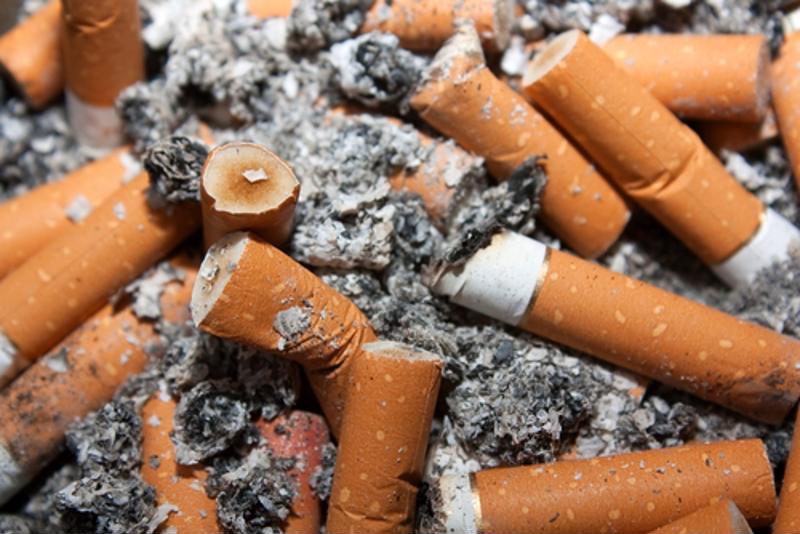So you’ve got all your oral care bases covered. Not only do you brush your teeth routinely — two times a day, everyday — but you also floss, use mouthwash, steer clear of sugary sodas, leverage an electric toothbrush for deeper cleaning and visit your dentist twice a year for your biannual checkup.
Yet despite these superior dental defences that you’re doing religiously, your breath stinks. What could the problem be? Your tongue may have something do with it — especially if you’re not brushing it.
The tongue is a remarkable organ — in addition to helping you sound out words, the tongue also of course helps you enjoy all the great flavour sensations of food and beverages, thanks to the thousands of taste buds that line its surface — more than any other part of the mouth.
But the tongue is also lined with massive volumes of bacteria — the same bacteria that comes from food and the infinitesimally small particles of food that aren’t swallowed.
Part of the reason for this is where the tongue is positioned — squarely in the middle of the mouth. Because of this, food can’t help but touch it. But the tongue also hangs on to bacteria due to how the tongue is structured. If you were to peer under a microscope, you’d be able to see just how intricate this unique organ really is, replete with elevations, valleys, clefts and crannies — nowhere near as smooth as you might suspect. Even when you’re regularly drinking water, those tiny crevices hold on to bacteria. And the more that builds up, forming a biofilm, the worse it can be for your breath.
 Smoking can contribute to bad breath, among other oral health ailments.
Smoking can contribute to bad breath, among other oral health ailments.Yet halitosis — the technical term for foul-smelling breath — isn’t the only consequence of not including your tongue in your two-times-a-day brushing regimen. Another is something called black hairy tongue. While actual hairs do not form on the tongue, it’s called this because of the papillae that grow and become stained a brownish-black color, a consequence of foods and drinks that have a richer hue to them, such as coffee, colas, red wine and grape juice and foods that use artificial colouring. Although harmless, black hairy tongue is highly unattractive, contributes to bad breath, can alter the taste of food and may even produce an uncomfortable tickling or burning sensation in the back of the throat.
Of course, there are many other potential contributors to malodorous breath. It can also be a product of chronic dry mouth, certain prescription and over-the-counter medications, use of tobacco products as well as infections affecting the sinuses. If you have a sore throat, that too can make your breath smell bad.
But if you haven’t been brushing your tongue and your breath is a problem, the quickest solution may be to begin brushing in. Here are a few tips that can help you do it effectively.
Watch your form
Much like the case for brushing, it isn’t enough to merely put bristles to your tongue and start scraping, with little regard to the best direction. The most effective approach is going laterally, meaning side to side, then longitudinally, meaning up and down. This crosshatch-like approach attacks the bacteria on the tongue from all angles so you can get those hard-to-reach places.
Brush your tongue last
While there is no hard-and-fast rule regarding the order, aim to make your tongue the last part of your morning, evening or after-meal oral care routine. This helps ensure that the particles that are loosened through flossing and brushing are cleared away from your tongue once you’re done.
Choose your ‘weapon’
As far as what kind of brush or scraping contraption, you may wonder which one works best. The truth is anyone will due — be it a manual toothbrush, batter-powered toothbrush or specialised tongue scraper. Tongue scrapers are uniquely designed for bacteria removal by the way they’re structured; people like them because they’re simple to use, effective and widely available — whether at your local grocery store, drug store or your oral care professional.
What to do if you still have bad breath
Even after diligently brushing your tongue as a supplement to your teeth and gums, it’s possible that you breath may continue to produce an unpleasant odour. If so, you definitely want to touch base with your dentist. There may be a quick fix, but it could also be the product of tooth decay, an infection in your mouth that’s gone untreated or even more serious health conditions that may require you to speak to a specialist, or at the very least your primary care provider.
Whether you think you might have chronic halitosis or are looking to have your wisdom teeth removed, City Dentists is a full service dental care provider that is equipped to answer and handle all of your oral health needs. Contact us today to learn more or book an appointment online.
